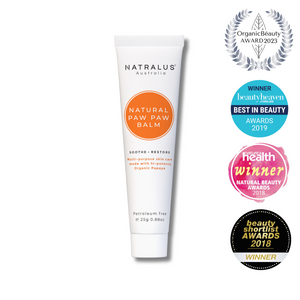Dry skin is often a minor irritation, easily corrected with simple moisturising or just through your body's natural process of moisturising itself.
However, for some people, dry skin is a persistent and long-term challenge, and different approaches and remedies don’t seem to work. On occasion, they might even make the problem worse. The effects of dry skin can range from mild irritation to significant discomfort. As the issue persists, it can become a discouraging effort trying to manage dry skin, which can affect mental wellness. This is why persistent dry skin can be such a problem.
What is ‘persistent’ dry skin?
What do we mean by persistent? In this context, it is a situation where dry skin occurs, starts to heal or fade, but then returns very quickly. This pattern continues over weeks or months. This is different from dry skin not healing, that might suggest a more complex problem. More advice is given about this below, under ‘Signs of dry skin’.
Understanding how to manage this problem lies first in looking at the signs, symptoms and potential causes of dry skin, and then examining some strategies that can help alleviate dry skin.
Signs of dry skin
Dry skin is not always obvious straight away. The clearest sign is flaking, scaling or peeling skin, ranging from slight to severe. Fine lines and cracks can appear, and sometimes those cracks start to bleed. The signs are not necessarily visual. Skin can feel dry or rough, and perhaps begins to irritate and itch. Feelings of tightness are not uncommon, particularly after bathing, showering or swimming. Other signs include redness or grey and ashy skin.
It’s important to note that more serious cases might require medical advice. Consult your doctor if the skin doesn’t improve despite best efforts, if redness accompanies the dry skin, itching and discomfort interfere with sleep, scratching leads to open sores, or scaling or peeling occurs in large areas of your skin.
Causes of dry skin
Dry skin occurs when skin doesn’t retain sufficient moisture. There are many reasons for this. Frequent or prolonged bathing, particularly in hot water, is a common cause. Harsh soaps, dry air (common in cold or very hot, dry areas), aging, medical conditions, the ‘hardness’ of the water in your area, and even simple lack of hydration can all be factors.
In terms of persistent dry skin, environmental factors and habits are really important to consider. How long do you shower? Do you prefer really hot showers? If you are a regular swimmer, is the pool chlorinated? What type of soap powder do you use? Do you keep hydrated?
Think about routine
A good first step is to consider your day-to-day routine. Think about how you wash, what you wash with, the types of cleaning products you use, and the water and general weather. If the dry skin occurs at particular times of the year, think about if there are certain things happening at those times that might affect your skin. Winter is a good example of a periodic risk factor.
Once you have identified your daily pattern, you can start to zero in on specifics. Time how long you wash in the shower. Experiment with the water temperature. Wear gloves when cleaning or handling any kind of detergent: many household cleaners and dish detergents are well-known skin irritants. If you are a swimmer and the pool is chlorinated, make sure your first action out of the pool is to rinse off with water.
Some of these simple changes could make a big difference in the long term, and might at least reduce the severity of persistent dry skin.
Treating dry skin
Making changes to your routine might not be enough. A further problem is that many popular moisturisers and skin care products can exacerbate the problem, rather than resolve it. This is because they are focused on short term satisfaction, rather than long term need. To manage dry skin, you need results that last.
A good place to start is with natural skin care options. Natural and organic skin care products have a number of benefits. They are free from chemicals, petroleum and parabens. They can also give some piece of mind, because they are not tested on animals, and are dermatologically tested. Finding options that are 100% Australian made and owned is also an important factor for many people.
Benefits of natural based products
Natural based products are often better options, because the more common over-the-counter products tend to have all kinds of artificial ingredients or fragrances which can cause more irritation, allergic reactions, or simply contribute to the dry skin in the long term.
Natural skin care is based on the premise of your body’s natural process to manage your skin. Your skin produces oils, designed to protect the skin from moisture loss. Organic skin care products that contain ingredients like Paw Paw, Aloe Vera and Vitamin E help support this natural process, rather than work against it. Using products such as Natralus Essential Paw Paw Ointment or Ultra Skin Repair Hydrating Gel can give your skin the long-term support it needs.
Give your skin the care it deserves
Your skin is an important and sensitive organ, and your body has developed natural processes to help keep the moisture in and work best for you. The influx of environmental factors and use of artificial products can contribute to significant challenges for people. Persistent dry skin can cause irritation, discomfort and even affect your mental wellness. Standard brands offer short-term fixes only, and might exacerbate the problem.
Refining your regular routine is a good first step in managing persistent dry skin. Using natural and organic skin care products helps consolidate your approach, augments your body’s natural processes, and gives the satisfaction that they haven’t been tested on animals.






